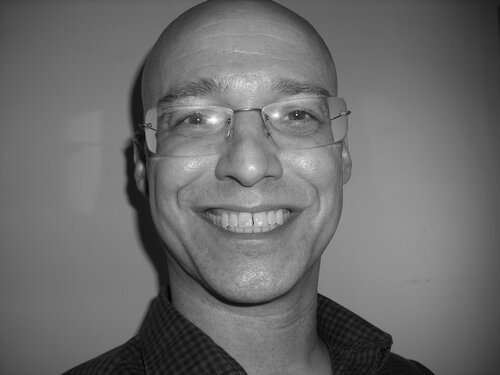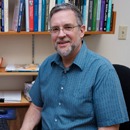Page 14 • (12,597 results in 0.033 seconds)
-
“Killer Drones: The Good, The Bad, and The Ugly” A screening of “Killer Drones: The Good, The Bad, and the Ugly” will take place at 7 p.m., Nov. 8 in the Scandinavian Cultural Center. The film will be followed by a short response by Pauline…
October 29, 2012 “Killer Drones: The Good, The Bad, and The Ugly” A screening of “Killer Drones: The Good, The Bad, and the Ugly” will take place at 7 p.m., Nov. 8 in the Scandinavian Cultural Center. The film will be followed by a short response by Pauline M. Kaurin, associate professor and chair of the PLU department of philosophy, with a discussion to follow. The film addresses the ethics of lethal drone warfare, presented by Bradley J. Strawser, assistant professor of philosophy at the
-
Example #1 As your instructor, it is my goal that you feel able to share information related to your life experiences in classroom discussions, written work, and our one-on-one meetings.
Required and Recommended Syllabi StatementsThis page includes statements for inclusion in your syllabi. Statements specific to blended and online courses can be found below. REMINDER #1: Do not simply copy and paste these statements into your syllabi but, rather, adapt them to meet the specific context in which you teach and to reflect your teaching philosophy. When multiple examples are provided, pick one, and also, delete any bracketed text.Please see the statements below as basic templates
-
Integrative Learning Objectives The Integrative Learning Objectives (ILOs) provide a common understanding of the PLU approach to undergraduate education.
reinforce in their own particular curricula the goals of the General University Requirements. They also assist the University in such assessment-related activities as student and alumni surveys. Not all ILOs are dealt with equally by every program, much less by every course. The ILOs do not represent, by themselves, all of our understanding of education. Rather, they are a part of a more complex statement of educational philosophy. The ILOs are meant to serve as a useful framework that unifies education
-

On Friday, September 29th, Athena Gordon had a conversation about vocation, teaching, and the importance of languages with two professors in the Department of Languages & Literatures. José Ramón Ortigas is an Assistant Professor of Hispanic Studies who earned his PhD from the University of…
. But we had a lot of tests and exams, and I failed them. It was really tough! [Laughs] So, I was disillusioned at that point. I discovered that I liked teaching. I became an elementary, middle, and high school teacher [for several years]. I wasn’t set on being a university professor at first.AG: Did you have a mentor who helped shape your vocation?JRO: Yes, and that mentor eventually became my dissertation supervisor. I took undergraduate literature classes and that is where my initial passion for
-
Mission: “Educating caring, skillful generalists to be ethical agents for global and local change.” The Pacific Lutheran University Department of Social Work is dedicated to educating individuals
Mission and Philosophy of the Social Work ProgramMission: “Educating caring, skillful generalists to be ethical agents for global and local change.” The Pacific Lutheran University Department of Social Work is dedicated to educating individuals for social work practice with individuals, families, households, groups, communities and organizations within a generalist framework that is based on a philosophy of social justice, egalitarianism, pluralism, and compassion for the oppressed. The
-
After millenniums of sex and centuries of poetry, the love poem as understood by Shakespeare and Donne, and by Oxford undergraduates – the true-life confessions of the poet in love, immortalizing
spirit of invention that gave us Shakespeare, Molière, Racine, and Goethe. As universities added new fields of study, the earlier university curriculum came to be seen as its own discipline, termed Altertumswissenschaft, the “Science of the Antiquity,” in the 19th century. The result is a uniquely interdisciplinary field. Classics, the Humanistic Science, is the study of the language, literature, culture, history, philosophy, geography, archeology, intellectual accomplishments, science, religion
-
Professors Claire Todd (Geosciences and Environmental Studies) and Sergia Hay (Philosophy) had the honor of working with this year's class of Environmental Studies students as they completed their
2021 Environmental Studies CapstonesProfessors Claire Todd (Geosciences and Environmental Studies) and Sergia Hay (Philosophy) had the honor of working with this year’s class of Environmental Studies students as they completed their interdisciplinary and culminating projects for their major. This capstone cohort tackled a wide range of current environmental issues and employed the methods and tools of multiple disciplines including biology, literature, chemistry, philosophy, art, political
-

Visiting Assistant Professor of Philosophy | Department of Philosophy | leland@plu.edu | 253-535-7396 | As a teacher of philosophy, I very much enjoy both 1) introducing new students to this exciting discipline and 2) teaching broadly across its many different subfields.
Patrick Leland Visiting Assistant Professor of Philosophy Phone: 253-535-7396 Email: leland@plu.edu Office Location: Hauge Administration Building - 222 F Professional Biography Education Ph.D., Philosophy, Johns Hopkins University Selected Publications “Kant, Organisms, and Representation” Studies in History and Philosophy of Biological and Biomedical Sciences 79 (2020) 101223: 1-10 (11,000 words) “Kant and the Primacy of Judgment Before the First Critique,” Journal of the History of
-

Associate Professor of Philosophy | Department of Philosophy | cooper@plu.edu | 253-535-7234 | Keith Cooper has been teaching at PLU since 1984.
- Excellence in Advising 2005 Biography Keith Cooper has been teaching at PLU since 1984. His graduate degrees in philosophy are from the University of Wisconsin-Madison; he also has a master’s degree in theology. His main areas of interest are the philosophy of religion and the philosophy of science, especially the question of methodological parallels between metaphysical inquiry and scientific theorizing (e.g., abductive reasoning). Favorite courses, in addition to those areas, include Formal Logic and
-
The COVID-19 pandemic is presenting itself to be a challenging time for educators, but experienced professors like Dr. Brenda Llewellyn Ihssen are facing this challenge head-on. Dr. Llewellyn Ihssen is a professor in the religion department at Pacific Lutheran University and teaches classes in the…
Educator and Cheerleader: Dr. Brenda Llewellyn Ihssen Posted by: dupontak / May 13, 2021 May 13, 2021 By Allyson Lessard '23English and Philosophy MajorThe COVID-19 pandemic is presenting itself to be a challenging time for educators, but experienced professors like Dr. Brenda Llewellyn Ihssen are facing this challenge head-on.Dr. Llewellyn Ihssen is a professor in the religion department at Pacific Lutheran University and teaches classes in the university’s International Honors Program as well
Do you have any feedback for us? If so, feel free to use our Feedback Form.


